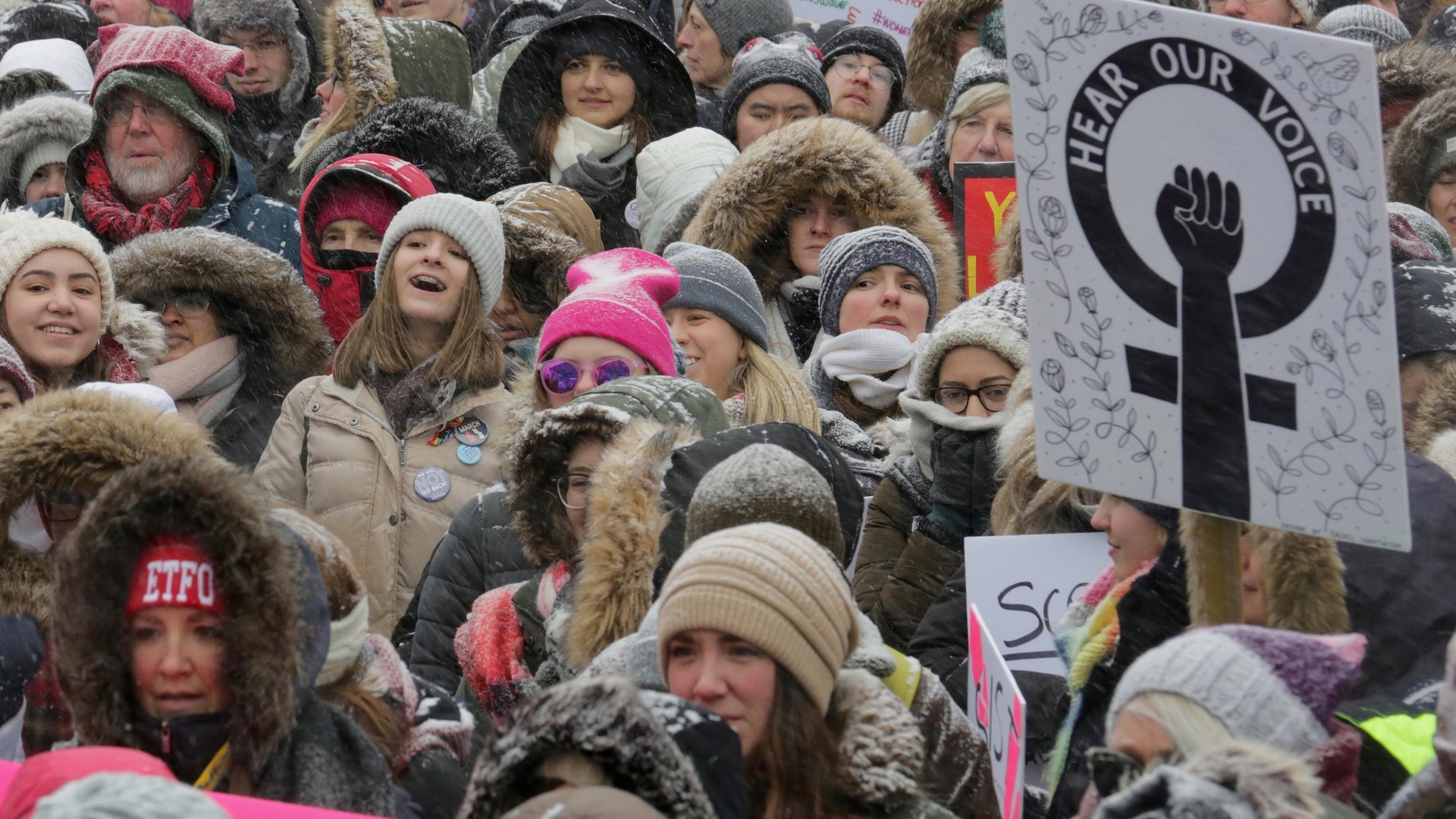Are fertility- and period-tracking apps feminist?
Honestly, I don’t much want to talk about women’s bodies—not on International Women’s Day, which is today (March 8), or at any other time, really. The idea that we should be even more focused on corporeality than we already are irks me deeply.


Honestly, I don’t much want to talk about women’s bodies—not on International Women’s Day, which is today (March 8), or at any other time, really. The idea that we should be even more focused on corporeality than we already are irks me deeply.
Is it not enough that we’re bombarded with messaging about what size and shape we should be to please? That we’re made acutely aware of ourselves as vessels of conception early on, and under pressure because of a biological clock? That we fear for our physical safety because these bodies are often weaker and smaller than those of men? That our sex makes people ignore our intellect and accomplishments? That we bleed monthly? That we bear children and pay for the privilege? That these facts have been held against us in countless ways and places across time and space?
But we are in these bodies nonetheless, as Ida Tin, founder and CEO of Clue—a Berlin-based company that makes period and ovulation tracking apps with over 10 million active users—points out to me when we speak. We are raised in cultures that have made being a woman shameful and trying. She asks, “How can we really advance gender equality and empowerment when the very notion that the biology that creates human beings is dirty, embarrassing or shameful?”
Tin argues that tracking the body with technology teaches women about themselves in a world where many still refuse to discuss physicality frankly. With more information about our reproductive systems, we can start to reshape the conversations around our health and sexuality in personal relationships, with doctors, and in the culture at large, she contends.
The conviction comes from her personal experience. Growing up in Denmark, her own mother didn’t discuss menstruation with her. When Tin got her period, she had to deal with it alone.
As she got older, it became more apparent to her that she wasn’t alone in not knowing much about her personal biology, and she wanted to do something to educate women. That sense she had has since been borne out by the success of her company’s apps.
Clue was founded in 2013. It makes “Femtech” apps. Tin believes these products, which include birth control, period and fertility tracking, and other general health and wellness features, can change the world. Her pitch: “femtech is the technological liberation the political one hasn’t been able to deliver.”
Superficially, it sounds simple—periods and pregnancies, no big deal. But she’s right that the technology actually could be profound. If we start to understand what we are experiencing in our bodies and why, we can better know our minds and emotions, make wise decisions, and a lot could change about the way we relate to and shape the world.
But of course, that is also my concern.
Knowledge is power. Information is liberating. Yet an early preoccupation with and emphasis on female biology might have implications that aren’t just empowering. How much, and how early, should a young woman be thinking about her fertility when she’s dreaming of a career? Having children is a biological imperative, of course, but perhaps young women shouldn’t be taught to worry about kids any more than they already are. Maybe being mired in biology via technology is just a scientific way to update the analog story that’s been told for millennia.
Tin concedes that there is a danger to Femtech. “It can be regressive,” she says, noting that many apps for women are designed by companies where female empowerment isn’t the goal and the male CEOS “don’t give a flying fuck about us.” And she also points that there is a danger to giving up personal data, particularly of the nature that Femtech requests, which means that companies must be transparent and ethical and users need to be clear on the terms of the deal.
Still, she’s vehement in her belief that technology can help make women stronger and better advocates for ourselves. And she offers a poignant example of how it works, referring to the gender pain bias in healthcare. “When women go to the doctor and say what they feel, physicians often don’t believe them. But when they go in armed with data about physical changes in their bodies, then the doctor has to take that seriously,” Tin says.
And despite my misgivings, I’m convinced. Because I do believe in the liberating power of information, on principle. And I can’t possibly exclude something as essential as biology, the physical self, simply because it’s been used as a way to keep women down. It’s precisely because of this history that Tin wants us to learn the language of our bodies, to track and collect the data—so that we can now use it to get ahead.
As Tin puts it, “It’s a real opportunity for women to begin to live in tune with their biology and not in spite of it. We would have stronger voices if they were aligned with our bodies and not left to respond to what the world tells us or tacitly expects of us. If we could make real what we experience and what we need, we could start to fashion the world to accommodate and deliver this.”